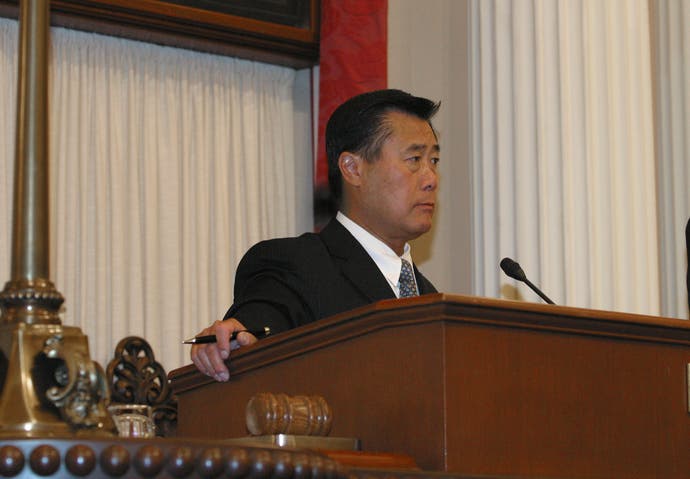Artists of Convenience
Why the industry only has itself to blame for political potshots.
In this opinion piece, John Teti gives his views on the latest attempt to legislate the sale of videogames in the US - and explains why he thinks it's time for the industry to start walking the "games are art" walk.
This month the US Supreme Court heard Schwarzenegger v. Entertainment Merchants Association. It's a case about a California state law that would ban sales of gory videogames to minors. If the law stands, the state will restrict the sale of titles it deems "violent", establishing a small exception to free-speech rights.
My biggest fear is that the EMA will lose this case. My second biggest fear is that they will win.
In their celebration, they're liable to miss the real lesson: they brought this near-disaster on themselves. It's the studios' own craven, short-sighted management of their image that makes it possible for opportunistic politicians to bring the heat.
In an astute opinion piece last month, Rob Fahey argued that the stated intent of the law - to keep kids from buying games meant for adults - did not seem so onerous, even if the actual language of the California statute was "hasty" and "ill-considered."
I don't agree with the need for a legislated age requirement, but I sympathise with Fahey's point that the immediate practical impact could be minimal. It's the long-term, symbolic effects of Schwarzenegger v. EMA that upset me.

The law disregards the industry's existing rating system, which permits stores to restrict the sale of "mature"-rated games on a voluntary basis. It implicitly calls for a government body that would deem certain games "violent" and therefore restricted.
In short, the state would regulate its vision of propriety in videogames. As someone who makes his trade in the industry, it's humiliating to see the Supreme Court even consider carving out a free-speech exception for the medium.
Freedom of expression isn't just any amendment in the US Constitution; it's the First goddamn Amendment. And here we are, this close to adding an asterisk that reads: "Amendment may not apply to videogames."
Such a verdict would be a ghettoisation of gaming, one that relegated it to a lower tier than other forms of expression - and a different set of rules. It would establish a precedent that opened games up to all manner of discrimination, as the medium would be officially "less than" the rest.
It's prudent to ask how we came this far. In his essay, Fahey argued that "ultra-conservative" movements were one of the driving forces behind the bill. But the bill's author and primary advocate is Leland Yee, a Democratic state senator from the San Francisco/San Mateo, perhaps the most liberal part of the country. The guy once tried to incorporate feng shui into San Francisco's building code - not exactly your stereotypical Bible-thumper.

Yee's bill passed the Assembly of a large, diverse state by a margin of 22 to 9. It was signed by Arnold Schwarzenegger, who is a Republican, yes, but further left than almost anyone in his party.
There would be less cause for concern if the legislative movement against games was an extremist effort. It's not. Trashing the games industry is one of the few pastimes that attracts statesmen from across the ideological spectrum. They pile on because the political points are there for the taking. And their constituents don't protest because they don't view videogames as an art form worthy of protection.
Whose fault is that? It's not Leland Yee's, not really. Instead of fanning ourselves in shock that elected officials can be opportunistic, we should be interrogating the people who allowed games to become such easy prey for the jackals.
After all, videogames are a vibrant, wonderful art form. I am tired of watching the studios do such a miserable job of selling this basic truth to the public.
In other words: games industry, Schwarzenegger v. EMA is your own damn fault.

